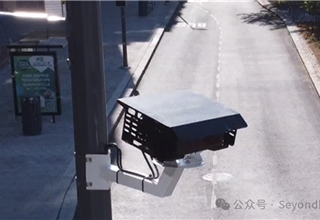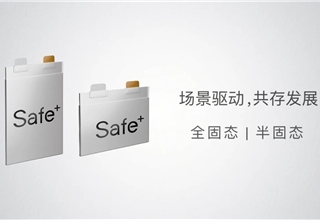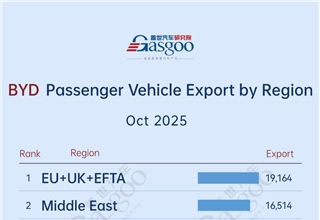Nine years after it was swallowed up in a German buyout, the former Chrysler Corp. will once again get a chance to prove it can succeed as an independent automaker.
The announcement Monday that private equity giant Cerberus Capital Management is buying Chrysler for $7.4 billion marks the beginning of another grand experiment in the global automotive industry.
Where Chrysler struggled as a division of DaimlerChrysler, the smallest of Detroit's Big Three automakers will now forge ahead as a private company backed by one of Wall Street's most aggressive investment firms.
But even as the dust settles on the historic breakup of DaimlerChrysler, the future prospects for Cerberus-owned Chrysler are hardly clear.
"What Chrysler needs now is focus and capital, and they'll have both," said Harley Shaiken, a veteran labor professor at the University of California-Berkeley. "But the real test is yet to come."
As it has many times before in its 82-year history, Chrysler once again riveted the automotive world, this time with the formal announcement of its divorce from its German partner.
After assessing three bids for Chrysler over the past 90 days, DaimlerChrysler picked Cerberus over competing offers from Canadian auto supplier Magna International and a powerhouse private equity team of the Blackstone Group and Centerbridge Partners.
The decision to choose Cerberus was made over the past two weeks when DaimlerChrysler entered into exclusive negotiations with the New York-based firm.
But the deal wasn't finalized until this past Saturday, when DaimlerChrysler CEO Dieter Zetsche and Chrysler Chief Executive Tom LaSorda met in Germany with Ron Gettelfinger, president of the United Auto Workers.
After accepting that the sale of Chrysler was a foregone conclusion, Gettelfinger gave the UAW's endorsement to the deal, which calls for Cerberus to own 80.1 percent of Chrysler and DaimlerChrysler to retain a 19.9 percent stake.
Auto analysts had expected the UAW to oppose a takeover of Chrysler by private investors.
But Gettelfinger said Monday that he never considered fighting the deal once DaimlerChrysler was committed to selling.
"Once that decision has been made, you have to deal with the cards that were dealt," Gettelfinger said, adding that he was given unspecified "commitments" by Zetsche and LaSorda about the future of its unionized labor force.
Chrysler is already in the midst of a major restructuring that includes buying out 11,000 of its 50,000 blue-collar workers in the United States and Canada. Another 2,000 white-collar jobs also are being cut.
Gettelfinger and Stephen Feinberg, Cerberus' chief executive officer, will meet today.
Founded in 1992, Cerberus specializes in buying distressed companies, reorganizing operations, and either selling them or taking them public.
But buying Chrysler, which is losing share in its core U.S. market, constitutes a risky bet for any private equity firm.
The $7.4 billion financial commitment by Cerberus includes pouring $5 billion into Chrysler's operations and another $1 billion into its financial services business.@@Page@@
DaimlerChrysler, which plans to change its name to Daimler AG, receives the balance of the cash. But the German automaker will ultimately end up paying out $650 million in the overall transaction.
It's a far cry from the heady days of the 1998 merger of Daimler-Benz and Chrysler in a stock swap valued at $36 billion at the time.
At Monday's announcement, Zetsche said the deal was a necessary step for both the health of Chrysler and its former parent corporation.
Analysts said the critical component of the deal was the agreement that the new Chrysler, called Chrysler Holding, would assume all of the estimated $19 billion in health-care obligations owed to UAW workers and retirees.
People close to the sale process said DaimlerChrysler's German management was determined to shed its health care commitments to American workers.
How Chrysler funds those health care costs is now the responsibility of Cerberus. The company's chairman, former U.S. Treasury Secretary John Snow, said he looked forward to tackling that and other tough issues in the months ahead.
Little is known of Cerberus' internal plans for Chrysler, but the firm appears to stand solidly behind LaSorda and his Chrysler management team for now.
"We believe in Mr. LaSorda's plans," Snow said. "We want to support those plans going forward."
Chrysler lost $1.5 billion — before accounting changes — on more than $60 billion in revenue last year, and also ceded its spot as the third-biggest seller of vehicles in the U.S. to Japanese rival Toyota.
The automaker's current recovery plan includes shifting production to more popular, fuel-efficient vehicles and increasing Chrysler sales in international markets.
LaSorda said Cerberus is "the right strategic buyer."
The Cerberus buyout is expected to be concluded by this fall. Once Chrysler goes private, it will no longer be required to reveal its sales, earnings and other financial benchmarks in government filings.
Instead, Chrysler can reorganize its operations and revamp its product lines under far less scrutiny than publicly traded rivals such as GM and Ford Motor Co.
While LaSorda will still run day-to-day operations at Chrysler headquarters in Auburn Hills, Mich., he will be assisted by a blue-chip team of automotive advisers hired by Cerberus.
Chief among those advisers will be Wolfgang Bernhard, the former chief operating officer of Chrysler and an instrumental figure in its last corporate comeback.









